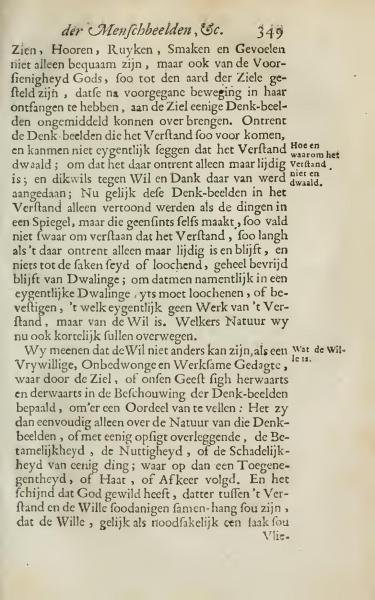Of Human Shapes
Seeing, hearing, smelling, tasting, and feeling are not only capable but also ordained by the providence of God, so that they are arranged according to the nature of the soul. After perceiving a preceding motion, they can convey some thoughts to the soul immediately. Regarding the thoughts that arise in the mind, we cannot rightly say that the mind is mistaken; it is only passive, merely reflecting these like a mirror does with objects. Thus, the understanding is not easily misled as long as it remains detached from any affirming or denying, staying free from true error, for actual error requires something to be either denied or affirmed, which is a function of will, not the mind. We shall shortly consider the nature of the will.
We believe that the will is nothing else but a spontaneous, unrestrained, active thought; through which the soul or spirit directs itself in the consideration of ideas, to render a judgment: whether simply on the nature of these thoughts or with some consideration of their appropriateness, usefulness, or harmfulness; which leads to inclination or aversion. It appears that God has intended a certain coherence between mind and will, such that the will is as necessary as any task.
Translation Notes:
- Verstand: Mind or Understanding
- Wil: Will
- Dwalinge: Error or Deception
- Denk-beelden: Thoughts or Ideas
The text discusses the interplay between sensory perception and the mind, emphasizing that the mind reflects thoughts passively like a mirror without actively engaging in error. Actual error comes from the will, not the understanding. It further explains that the will is an active thought process necessary for making judgments, aligned with divine intention.
